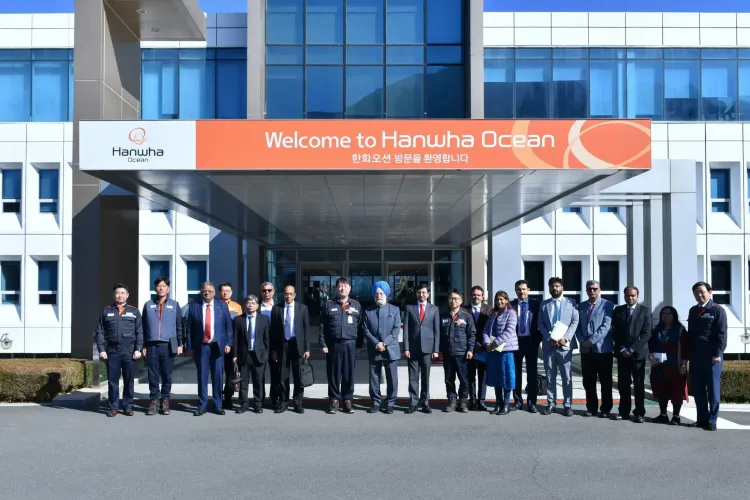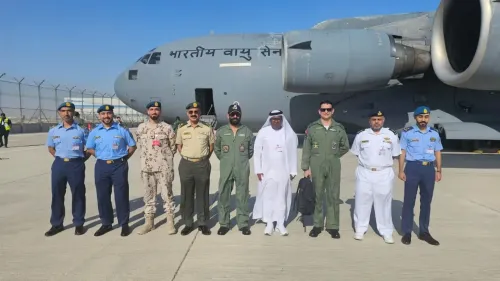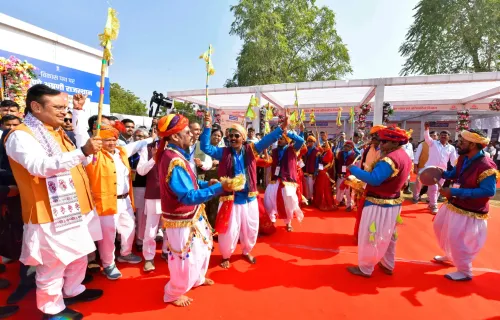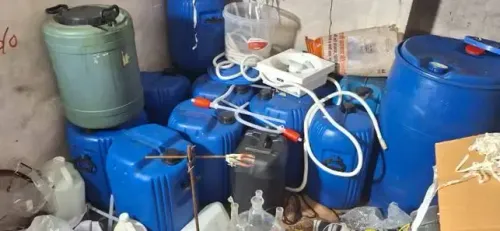Is Now the Right Time for Collaborative Shipbuilding with South Korean Firms?

Synopsis
Key Takeaways
- India's maritime sector is poised for growth.
- Strategic collaboration with South Korea offers vast opportunities.
- Government incentives support shipbuilding initiatives.
- India aims to become a global maritime hub.
- Energy demands drive the need for new vessels.
New Delhi, Nov 15 (NationPress) Korean shipping enterprises possess the expertise and resources, while India boasts the demand, skilled workforce, and favorable policies to forge a prosperous alliance in line with the ‘Make in India’ initiative, stated Petroleum and Natural Gas Minister Hardeep Singh Puri on Saturday.
During his visit to Seoul, Puri engaged with various South Korean firms, seeking avenues for strategic collaboration between India and Korea, particularly in the shipbuilding sector.
“I toured the vast shipbuilding site of Hanwha Ocean in Geoje, South Korea. With significant growth across various sectors, the Indian economy, recognized as one of the fastest expanding in the globe, along with our energy sector, presents extensive partnership and investment opportunities as we strive for Viksit Bharat under PM Modi,” Puri shared on X.
“Our energy public sector units invest approximately $5-8 billion annually on energy freight, and there is an initial requirement for about 59 vessels. This represents a tremendous opportunity for global leaders like Hanwha Ocean to partner with us and construct these vessels in India,” the minister remarked.
He further emphasized that now is the opportune moment for “our collaboration in shipbuilding to satisfy global demand.”
“We will not only recuperate the costs of our vessels within five years but also position India as a global maritime shipping center,” stated Puri.
India has launched robust support initiatives to expedite shipbuilding, including 15–25 percent capital support for vessels constructed in India, an additional 5 percent incentive for ship recycling, the Marine Development Fund for equity financing, 3 percent interest subvention, and infrastructure assistance for greenfield shipyards and clusters.
The minister highlighted the importance of enhancing LNG and crude carrier shipbuilding to fulfill India's escalating energy needs and establish a self-sufficient maritime future.
Puri had previously visited the advanced shipyard of HD Hyundai Heavy Industries in Ulsan, renowned as the world’s largest shipyard engaged in ship construction, offshore plants, and machinery sectors.
“With 20 percent of vessels either destined for or departing from India in the next 15 years, this presents a prime opportunity for Korean ship manufacturers to collaborate with us and ‘Make in India for the World’,” concluded the minister.









